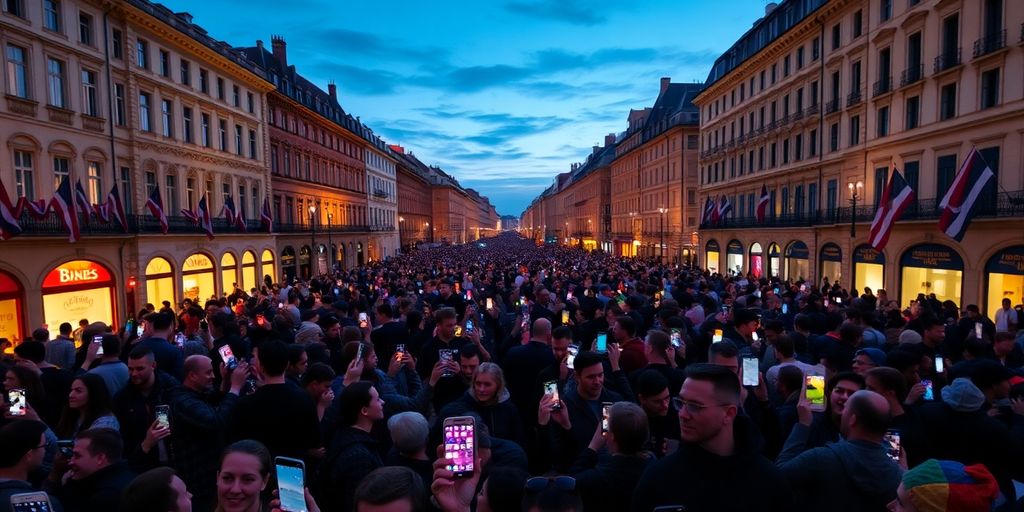Thousands of Serbians, led by university students, have rallied in Belgrade and across the country, demanding snap elections. These protests, ongoing for seven months, were sparked by a deadly train station canopy collapse in Novi Sad, which many attribute to government corruption and flawed infrastructure projects.
Calls for Snap Elections Intensify
Protesters are pushing for early parliamentary elections, arguing that the current government is incapable of delivering justice for the victims of the Novi Sad tragedy and addressing systemic corruption. While presidential and parliamentary elections are not due until 2027, the student movement believes a new government is essential to meet their demands for accountability and the rule of law.
- Protesters marched to the public prosecutor’s building and government headquarters, chanting "We want elections!"
- Leaflets outlining their program for elections called for independent institutions, free media, and fair elections.
- Students vowed to maintain pressure with synchronized protests nationwide.
The Novi Sad Tragedy: A Catalyst for Discontent
The collapse of a concrete canopy at the Novi Sad train station on November 1, which killed 16 people, ignited the widespread protests. Many Serbians believe the disaster was a direct result of shoddy renovation work and link it to alleged government corruption in major infrastructure projects, particularly those involving Chinese state companies.
- No one has been sentenced in connection with the tragedy, despite authorities indicting over a dozen people.
- Doubts persist that legal proceedings will fully expose the alleged corruption behind the crash.
Government Response and Public Sentiment
President Aleksandar Vucic, initially dismissive of early elections, has recently suggested they might be held, though without specifying a timeline. His government has faced accusations of authoritarian rule and clamping down on democratic freedoms, including media control.
- Pro-government media have attempted to downplay the protests, falsely claiming low turnout and labeling blockades as "terror."
- A survey by pollster Crta indicated that 59% of citizens support the protests, a figure disputed by authorities.
- The protests have previously led to the resignation of the prime minister and the collapse of the government, with a new government formed in mid-April.
The Role of the European Union
The European Union, which Serbia formally seeks to join, has been urged to play a more active role in supporting the protesters and pressuring the Serbian government for democratic reforms. Critics argue that the EU has often overlooked the Vucic government’s actions in favor of regional stability.
- EU Enlargement Commissioner Marta Kos stated that significant democratic reforms are necessary for Serbia’s advancement toward bloc membership.
- The EU is Serbia’s main trading partner, suggesting economic leverage could be an effective tool.
- Despite the EU’s potential influence, EU flags are rarely seen at Belgrade demonstrations, unlike in other anti-government protests in the region.
Sources
- Serbian protesters push for fresh elections, Yahoo News UK.
- Serbia’s protesting students rally across the country to mark 7 months since train station tragedy, ABC News.
- Thousands rally in Serbia’s capital demanding snap elections after months of protests, Temple Daily Telegram.
- How the EU Can Help Serbia’s Protesters, Center for European Policy Analysis (CEPA).
- Thousands rally in Serbia’s capital demanding snap elections after months of protests, AP News.






